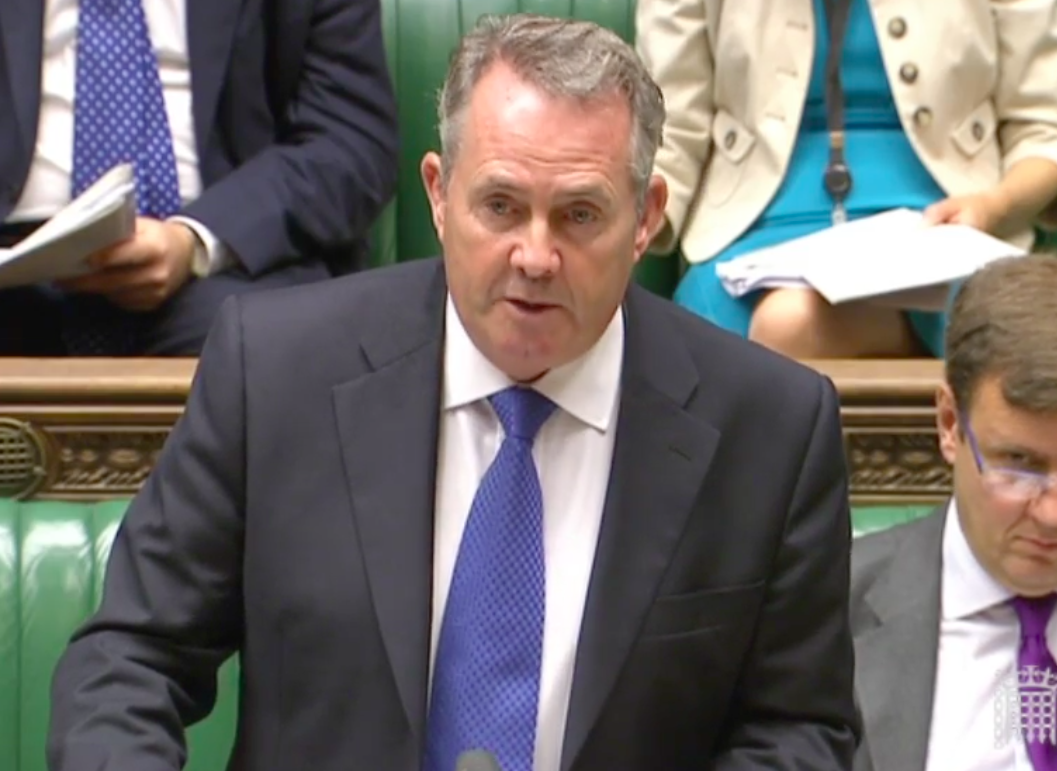The future of the controversial TTIP trade agreement looks “less than secure”, Britain’s new International Trade Secretary has said.
Liam Fox, a staunch Brexiteer, reiterated his support for the US-EU trade treaty and said the Government would continue to push it forward even though it was leaving the EU.
But he said recent comments by French and German ministers showed that it may never happen, despite Britain’s support.
“While we remain in the EU we will continue to push all free trade agreements possible because we believe in global trade liberalisation. That includes the Government’s position of support for TTIP,” Mr Fox told the House of Commons.
“It remains the US clear priority to get this agreement but I think he would accept that given the comments that have come in France and Germany and the fact that we have elections in both those countries next year the future of TTIP, at least in the immediate future, looks less than secure.”
Little is known for certain about the substance of TTIP because it is being negotiated in secret between the EU and US. Leaks pieced together by campaigners have however painted a picture of a deal that would allow multinational corporations to sue governments for policies that harm their profits.
This would occur through a system called “investor state dispute settlement” that has been used in other trade deals around the world.
Germany’s vice-chancellor Sigmar Gabriel said late last month that TTIP had failed “but no one is really admitting it”. France’s trade minister also suggested that negotiations were not proceeding to plan and should stop, while France President Francois Hollande has said he would not accept the deal in its current form.
Mr Fox made his comments at his first session at the dispatch box as head of the new Department for International Trade on Thursday morning.
Looking at post-Brexit trade arrangements more generally, the minister also admitted that Britain could not even begin formally negotiating free trade accords with other countries until it had already left the European Union.
The 6 reasons why we should be scared of TTIP
Show all 6With the start of secession negotiations very unlikely to begin before even the end of the year, and their end expected to be between two and five years time, new trade deals appear a long way off.
“While we are not able to negotiate in terms of concluding a deal while we’re members of the EU there is nothing to stop us having discussion and scoping out future agreements,” he said.
“We have now set up a deal to set up a trade working group with India to look at how we remove barriers to trade ahead of negotiating a free trade agreement on our exit from the European Union.”
There was little additional information from the Department for International Trade team on whether Britain would remain in the European single market.
Greg Hands, another minister at the department said: “Our objective will be to gain as much access to European markets as we can, consistent with the way people across the whole of the UK voted on the 23 June. That is the purpose of our approach.”
That statement came after Theresa May stonewalled on the issue of single market membership during Prime Minister’s Questions on Wednesday. David Davis, the Brexit Secretary, said he thought membership of the single market was not likely given moves to restrict freedom of movement.
Mr Fox made similar comments earlier in the summer; both ministers were slapped down by Downing Street following their claims.
Subscribe to Independent Premium to bookmark this article
Want to bookmark your favourite articles and stories to read or reference later? Start your Independent Premium subscription today.


Join our commenting forum
Join thought-provoking conversations, follow other Independent readers and see their replies